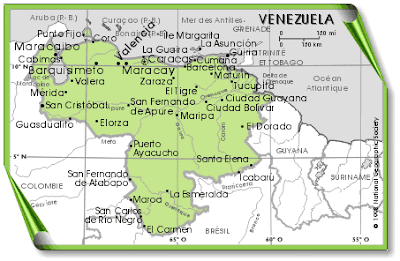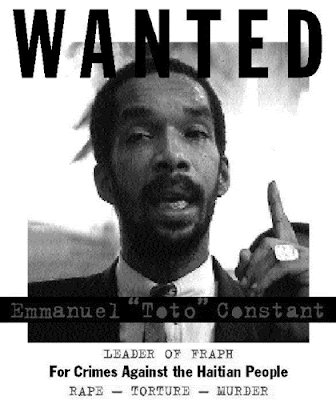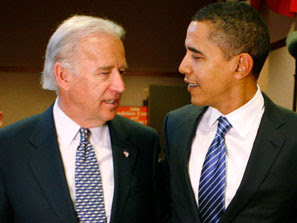Massive police raids on suspected protestors in Minneapolis
Federal government involved in raids on protesters


 The latest edition of Foreign Policy (Jan/Feb 2002) contains a special advertising supplement, The Andean Surprise, sponsored by Foreign Policy and the Andean Development Corporation. The introduction briefly acknowledges that some of the Andean countries (Colombia, Venezuela, Peru, Bolivia, and Ecuador) are facing difficulties (see quote below), and then the supplement goes on to highlight positive developments in the various countries.
The latest edition of Foreign Policy (Jan/Feb 2002) contains a special advertising supplement, The Andean Surprise, sponsored by Foreign Policy and the Andean Development Corporation. The introduction briefly acknowledges that some of the Andean countries (Colombia, Venezuela, Peru, Bolivia, and Ecuador) are facing difficulties (see quote below), and then the supplement goes on to highlight positive developments in the various countries."What follows is a country-by-country review that highlights surprises not wishful thinking or romantic ideas, but impressive accomplishments that deserve recognition and offer solid ground for optimism. This is not to deny the region’s troubles, a number of them no doubt considerable."
This OPED will take a quick look at Venezuela- at some of the positives highlighted in the supplement and then at some of Venezuela's "troubles". According to the supplement one of the 'impressive accomplishments' achieved by Venezuela is that:
The following is a short list of some of the factors (not mentioned in the supplement) that contribute to Venezuela's "considerable troubles":
In conclusion, with economic problems mounting, with Chavez's popular support slipping among the poor and even the military, with Chavez threatening to rule by decree and to remain as president until 2021 even though this would violate the constitution, Venezuela looks headed for an extended period of political and economic turmoil.
The small type at the end of the advertising supplement says "This special advertising supplement was produced by FOREIGN POLICY's business department, and did not involve the editorial staff of FOREIGN POLICY." Given the enormous challenges facing Venezuela at this juncture it would seem that the business department should talk to the editorial department, given that there is a good possibility that future editions may soon have articles on negative developments in Venezuela!





 One thing Senator McCain's pick of Sarah Palin as his running mate has done is set off an orgy of opinion re who is qualified to be VP, the experience needed, etc. News talking heads, bloggers of all stripes, "scholars" have all chimed in with their opinions... Perhaps not exactly the effect McCain intended! This blogger would ask a (rhetorical) question - would any other pick have made a difference? No matter the person picked Democratic stalwarts, acolytes, and hangers-on were ready to jump in and find fault - too little experience, too much, too young, too old, blah, blah, blah. Beyond this, this blogger has three observations:
One thing Senator McCain's pick of Sarah Palin as his running mate has done is set off an orgy of opinion re who is qualified to be VP, the experience needed, etc. News talking heads, bloggers of all stripes, "scholars" have all chimed in with their opinions... Perhaps not exactly the effect McCain intended! This blogger would ask a (rhetorical) question - would any other pick have made a difference? No matter the person picked Democratic stalwarts, acolytes, and hangers-on were ready to jump in and find fault - too little experience, too much, too young, too old, blah, blah, blah. Beyond this, this blogger has three observations:1. There seems to be a quantum difference in reactions towards men and women. Would anyone make fun of a male candidate for having been on a high school state champion basketball team?? Would anyone say the following about a male candidate? "What's more is that the woman is 44 years old and still having kids. Honestly, five kids? Must be true what they say about Alaska: there really isn't much to do up there."? Or "Sarah f*+ing" Palin?" Or "Palin has a degree in "journalism" from the University of Idaho." (notice the quotes). Would people dig up old "beauty" photos and snicker about them (wasn't George W. Bush a cheerleader at Andover? This blogger doesn't remember this being made out to be a big deal, even though that isn't the most masculine of pursuits...). Would people fuss about a man's hair, clothes, looks? This blogger thinks not, and despite all the recent nattering about "18 million cracks in the glass ceiling" it is apparent that most people are not ready for a woman to be (close to) running this country.
2. It all depends on whose ox is being gored! There is no doubt in this blogger's mind that had Obama picked an identical Democratic "Palin equivalent" all the Democrats currently finding fault with Palin would be in the midst of paroxysms of joy and extolling the brilliance of the move... while all Republicans would be 100% the opposite of where they are now with respect to this? (Note; this blogger can't wait for the elections to be over and all these addle pated purveyors of tripe to fade back into the woodwork!)
3. Finally, (more of a question than an observation) what exactly constitutes preparation for the VP to be "a heartbeat away from the Presidency"? (a long shot, even if in the country's history the VP has stepped up nine times). Much is being made about Palin's lack of foreign policy knowledge and experience... Is this important, did Presidents Carter, Reagan, Cinton, or George W. Bush have much in the way of foreign policy chops before being elected? What about experience? Is a long resume a good judge of effectiveness? Prior to becoming Vice President, Richard Bruce "Dick" Cheney had a ton of experience - as did Gore, Mondale, George H.W. Bush, Spiro Agnew. Yet Agnew resigned in disgrace, the American people rejected Mondale and Gore as President, and Dick Cheney's fingerprints have been all over every single failure of the Bush administration! Only George H.W. Bush was elected (and to a single term, which the American people saw fit not to extend!)
P.S. If 'distance from the Presidency' is that all-important, this blogger assumes that most people haven't spent much time thinking about the Presidential line of succession. If something were to happen to the President & VP the next in line for the Presidency would be Nancy Pelosi (D-CA, elected by 148,435 Californians), followed by Senator Robert Byrd (D-Antediluvian, sorry, actually D-WV and former Exalted Cyclops of the KKK), then Condoleezza Rice, and Henry Paulson (the last two not having been voted for by a single person)...

Apparently Palin was earlier asked by Larry Kudlow if she would be interested in the second spot on the ticket. Her response was "As for that VP talk all the time, I’ll tell you, I still can’t answer that question until somebody answers for me what is it exactly that the VP does every day? I’m used to being very productive and working real hard in an administration. We want to make sure that that VP slot would be a fruitful type of position, especially for Alaskans and for the things that we’re trying to accomplish up here for the rest of the U.S., before I can even start addressing that question.”
Well, a number of dimwits over at the HuffPo are hyperventilating over this - a sample comment "Let's see here now. We have someone running to be Vice-President of the United States who does not know what the Vice-President does. Out-bleeding-standing!"
Egad, how ridiculous can you be? She knows what the Vice President does - exactly as much or as little as the President allows. The constitution only specifies that the VP "shall be President of the Senate, but shall have no Vote, unless they be evenly divided" (See article I, section 3); and has a duty to receive from the states the tally of electoral ballots cast for president and vice president and to open the certificates "in the Presence of the Senate and House of Representatives," so that they can be counted (see article II, section 1).
It is clear to this blogger that her point was that her level of interest would depend on what role a President McCain would devolve to his VP - if merely attendance at funerals she would have no interest; if a more substantive role then she probably would be interested.
There are plenty of valid criticisms that can be leveled against Sarah Palin, without making up stuff out of whole cloth (e.g. she doesn't know what the vice-president does) or making gross exaggerations. Reactions like these say more about the intelligence of the poster than of the candidate. Ack !
Vice President of the United States (President of the Senate)





 In the multitudinous articles on the subject, this blogger hasn’t seen much mention of the military activities that occurred in the region not long before the latest flare up in South Ossetia between Georgia and Russia.
In the multitudinous articles on the subject, this blogger hasn’t seen much mention of the military activities that occurred in the region not long before the latest flare up in South Ossetia between Georgia and Russia. Senator Obama has picked his running mate and candidate for vice president, and it is Senator Joe Biden. Reactions have been mixed, but most people seem to agree that Biden is considered an expert on foreign policy, international relations, and what is going on in the world. Reading and re-reading about Biden's expertise, this blogger began to reflect on what it takes to be seen as an expert in political circles in Washington, D.C.
Senator Obama has picked his running mate and candidate for vice president, and it is Senator Joe Biden. Reactions have been mixed, but most people seem to agree that Biden is considered an expert on foreign policy, international relations, and what is going on in the world. Reading and re-reading about Biden's expertise, this blogger began to reflect on what it takes to be seen as an expert in political circles in Washington, D.C.Prediction #2:
Actual results:
 Modeling the medals (July 30th) looked at the predictions from three different models. Clearly Both China and Great Britain exceeded the predictions, while Japan underperformed... The PwC model did well on the rankings but not as well on the total medal count...
Modeling the medals (July 30th) looked at the predictions from three different models. Clearly Both China and Great Britain exceeded the predictions, while Japan underperformed... The PwC model did well on the rankings but not as well on the total medal count... After Dennis Quaid's twins had a close call with a heparin med error, the Quaids set up a foundation "to try to do something about this pervasive, yet solvable problem (med errors)." Earlier, after their child died following a series of errors in Florida, the Ferreros set up a foundation in memory of their child. Several years ago, after their child died (also from a med error), the Kings set up a foundation in her memory to fight the scourge of med errors.
After Dennis Quaid's twins had a close call with a heparin med error, the Quaids set up a foundation "to try to do something about this pervasive, yet solvable problem (med errors)." Earlier, after their child died following a series of errors in Florida, the Ferreros set up a foundation in memory of their child. Several years ago, after their child died (also from a med error), the Kings set up a foundation in her memory to fight the scourge of med errors.Michael Phelps - eight gold medals in eight events, seven world records and one Olympic record. What can one do but bow down in awe? A-bloody-mazing! Though a couple of races were close, he dominated his rivals in most of the events....
What this blogger doesn't understand though, is the need of so many people to boil it all down to "the best athlete in the world." Why can't we just marvel at this amazing performance in a particular sport, without making it a competition with other Olympic sports, athletes present and past, and other non-Olympic sports events?
So, his nine golds are the largest haul in any single Olympic Games, but that is not a metric that is comparable across all disciplines. A boxer (or wrestler, fencer, and sportspersons in many other disciplines...) could be totally dominant in their sport and unable to win a comparable number of medals because there are fewer separate events... Why do we have to boil it down to a "number one", as opposed to adding his performance to the pantheon of amazing Olympic performances, including those such as:
And how do you compare Phelp's performance to the Tour de France? The Tour lasts 23 days, consists of 21 daily stages with just 2 rest days (10 “flat” stages, 5 mountain stages, 4 medium mountain stages, and 2 time trials)... Twenty teams each of nine riders compete for a total distance of 3,000.5 kilometers, (winning time: 87 hours 52 minutes and 52 seconds!). Answer: You don't! (and it was a silly thing for his team mate to say!) Apples and oranges, this blogger salutes them all - Michael Phelps, Olympic champions past and present, Tour riders, all those who pull off these remarkable feats of physical prowess and endurance to the cheers of the armchair spectators (this blogger included!).
The delusional:
President Bush Discusses Situation in Georgia
Perhaps they miscalculated
Someone got taught a lesson
Bush, Rice demand Russia quit Georgia
On the money:
Intellectual Dishonesty and the Culpability of All
Russia-Georgia Conflict Fueled by Rush to Control Caspian Energy Resources
Georgia: A Blow to U.S. Energy
Illarionov: Thirteen Conclusions about the War
Conflict Exposes Obsolete Hardware
Russia's big Caucasus win
This is a tale of US expansion not Russian aggression
'We Are All Georgians'? Not So Fast.
Misc:
Georgia - Wikipedia
South Ossetia - Wikipdia
War photos:
Photos - milkavkaz.net
Photo Gallery - Spiegel Online

What the U.S. should do... a) Stop the blathering and unhelpful sabre-rattling, everyone knows there is not much we can do right now, all that the yakking from the administration is doing is reminding everyone of this fact! b) Work, quietly, to defuse the situation... that is reduce the confrontation and possibility of flare ups... c) Get both sides to pull back - initially partial pullbacks are OK, don't insist on the (unachievable) maximum... d) Deploy the humanitarian aid... e) Georgians have rallied around their President, but once things calm down they are going to start questioning his tactics and effectiveness... When that happens, don't prop him up, in fact a slight shove might be a good idea (we want allies but not hotheads who can't control themselves in sticky situations)! f) Later move cautiously towards recognizing the independence of South Ossetia and Abkhazia. The South Ossetians have voted for independence in 1992 and 2006 in referenda as democratic as the Georgian elections (that the administration is trumpeting). Short-term some will perceive this as a Russian victory, long-term it will be their worst nightmare (giving ideas to the North Ossetians, Chechens, and a whole host of host of other "Russian" provinces... )
Updated August 18th: Examples of bluster: On her way to an emergency meeting of NATO foreign ministers, Secretary of State Condoleezza Rice said that Russia is playing a very dangerous game... warned that NATO would not allow Moscow to win in Georgia... that the alliance would punish Russia for its invasion of Georgia... "We are not going to allow Russia to draw a new line..."... that the French would be seeking "an explanation from the Russians for why the Russian president either won't or can't keep his word."... and so on.